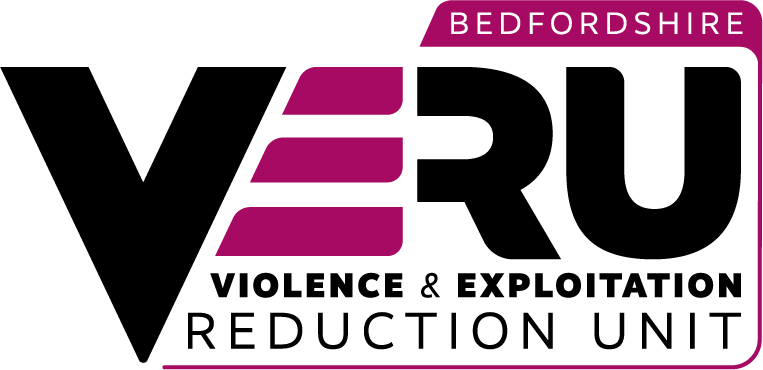for parents
Where Can Parents Get Help?
who we are
Bedfordshire Violence and
Exploitation Reduction Unit
We are Bedfordshire’s Violence and Exploitation Reduction Unit (VERU). Established in 2019, through government funding, we are one of 22 specialist units across the UK and the only unit to place an emphasis on the link between violence and exploitation.
A network of different agencies and groups aiming to tackle the root causes of societal issues that affect young people, we work with partners to prevent our young and vulnerable people from being pulled into criminality, violence and exploitation.
Our team is made up of specialist professionals able to provide informed support and advice to help young people and families to better understand the risks and signs of exploitation and criminality, navigate challenging circumstances and make positive contributions to the wider community.
for parents
Understanding Exploitation and Its Links To Violence
Knife crime
Knife Crime - Starting The Conversation
Everybody working to prevent violence and exploitation agrees that the best way to reduce street violence and the use of knives is to stop young people from carrying them in the first place. This will only happen through education; young people need to be better informed about the dangers and the consequences of carrying knives.
Too many young people still believe that carrying a knife will help them defend themselves, or that if you stab someone in a certain place on their body, that won’t cause serious injury. We want to help parents and other adults raise the subject with young people and have the conversation to improve their awareness and understanding. All young people should be encouraged to have this conversation.
Even if you don’t think it is relevant to your child or the young person that you know – it is relevant to all young people.
Find the right time and place – somewhere the young person feels safe and relaxed. Ensure you won’t be interrupted. Let them know you are not there to judge them.
Listen
Don’t expect or demand them to talk. If they do, be patient and try not to react badly to what they tell you. Let them have the voice in this conversation.
Encourage them to share their fears
And, where appropriate, share your own fears – tell them how much you worry about their safety and their future.
Be positive
Reassure them that the vast majority of young people don’t carry knives. If they are scared of someone or something, tell them it can be dealt with without the need for them to carry a knife.
Stick to the facts
Prepare well and know your facts. You will gain credibility in their eyes if you sound knowledgeable and clued-up. Our facts page tells you all you need to know about knife crime.
Reassure them that most young people don’t carry a knife
The latest research from London shows that in a room of 100 young people, just two of them would be carrying a knife. Encourage your child not to stand out from the crowd.
Be clear about false ‘bravery’
Emphasise that if someone pulls a knife on them, the safest, wisest and bravest thing to do is to walk away. Children fear backlash and being targeted by a wider group for not stepping up to a situation or individual. Remind them that this moment will pass and attention will move away from them in time. Standing their ground can have lasting, devastating consequences.
Explore excuses
Think about stories your child can use to walk away from potentially risky situations. They might have to pick up their little brother, or arrange for you to call them if they send you a message.
The impact
If they were to be stabbed, who else would be affected by that? Help them to think through what would happen and the impact on others, such as their siblings, parents and friends.
Make it relevant
Refer to recent news stories or local events. You can use some of our stories to help bring this topic home. Also, try to make yourself relevant to the conversation, as it’s likely the young person will think you are old and out-of-touch and have no idea about the challenges they face. Are there examples you can draw on from your own childhood or personal experience? You might want to share your own fears about their safety and their future. Tell them that even when they feel they don’t have choices, they do.
Suggest alternatives
Tell them about fun, safe activities for young people in the area.
If you learn some worrying things about the young person, try not to react badly. You could end up pushing them away. Use the conversation to help them understand the risks and consequences – they could go to prison for life, or end up dead themselves. If you believe they have actually used a knife on someone, you must report it. Better that they end up in trouble with the law now than injured or killed later.
Talk to the parents of your child’s friends. If you’re worried, they probably are as well. They may see your child in different places, hanging out with different friends and could help you get a better understanding of the situation. By working together you could raise awareness.
Want more help and advice? Remember you can always reach out to report and for support.
Know what knives and other items you have in the kitchen and toolbox. Check that they are all there.
Keep tabs on what is delivered to your home and look out for any online purchases. Knives can come in all shapes and sizes; recently a US company was found to be advertising on Instagram, knives disguised as lipsticks and combs – clearly aimed at young women.
Keep engaged with kids’ lives and keep an eye on their social media accounts. A lot of gang grooming and arguments that escalate into serious violence take place on social media and other online platforms.
Think about searching their bag and room – is there evidence of drugs, extra money, new clothes? Consider other hiding places.
Remember it might not be a knife, but some other weapon.
Know where they are and who they are with.
Encourage them to hang out in safe areas wherever possible.
These are a useful list of warning signs that might indicate a young person is carrying a knife. These are aimed mainly at parents but can be useful for anyone who comes into contact with young people.
- Have they become withdrawn from the family and/or school?
- Is their school or college reporting worrying changes in behaviour, academic achievement or attendance?
- Have they lost interest in positive activities such as sports clubs?
- Do they stay out unusually late without giving a reason and are vague about their whereabouts?
- Have they stopped seeing old friends and started hanging out with a new group?
- Are they secretive about the contents of their bag?
- Are they defensive if you ask what is in their possession or if they are hiding anything?
- Has their attitude changed about carrying knives/weapons? For example, justifying it by saying people carry them for self-defence?
- Have any items gone missing from the kitchen, tool box or garage?
- Have you found a weapon hidden amongst their possessions?
There are a number of weapons bins across the county and every knife surrendered is one less dangerous weapon in circulation on the streets of Bedfordshire.
The locations of the bins have been selected based on where there has been an increase in serious youth violence and knife crime
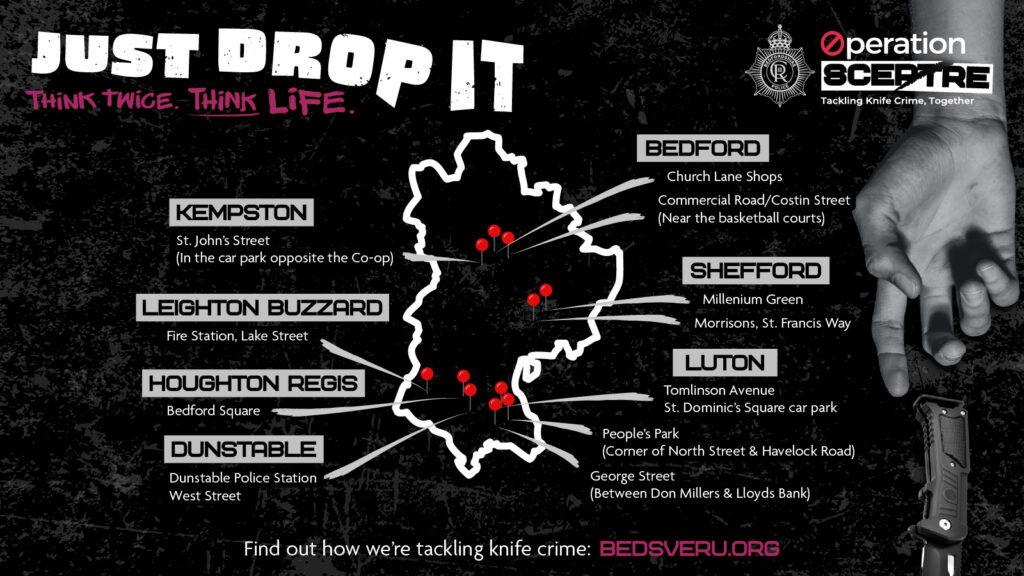
You can dispose of your knife at any one of the following knife bins:
- Bedford Square, Houghton Regis
- Dunstable Police Station
- Leighton Buzzard Fire Station
- Tomlinson Avenue, Luton (in the car park for St. Dominics Square)
- People’s Park, Luton (on the corner of North Street and Havelock Road)
- Just off St George’s Street, Luton (between Don Miller’s and Lloyds Bank)
- Millennium Green, Shefford
- Morrisons, St Francis Way, Shefford
- Church Lane shops, Goldington, Bedford
- Commercial Road/Costin Street, Bedford (near the basketball courts)
- St John’s Street, Kempston (in the car park opposite the Co-op)
We would advise people to ensure that the knife is wrapped up and secure as if you are stopped by a police officer, you would need to prove that you are on your way to a weapons bin to actually dispose of it, as opposed to someone who is found with a knife concealed in their clothing.
Just because the knife has been surrendered, doesn’t mean it won’t be sent off for a forensic examination. If it’s found to have been used in crime, then you will not be immune from prosecution just because you have surrendered it.
Violence and exploitation
Knife crime is often linked to things like grooming and exploitation, as well as gangs or the illegal drugs trade.
Sometimes people involved in crime will take advantage of young people and manipulate them into doing things they wouldn’t normally do, such as helping to sell drugs, carrying weapons or stealing for example, which puts young people at risk.
The tactics that these people use are clever, and someone might not understand they are being used or ‘groomed’. They can include:
- making a young person feel that they will be looked after
- that they will gain respect or money
- gifts such as trainers or phones
- lending them money
These tactics often mean the young person is then in their debt and will owe them favours, such as carrying weapons or selling drugs. They have no problem with putting a young person at risk to make money.
We know that some young people, when put in a difficult and frightening situation, have made decisions in the heat of the moment that have unfortunately changed their lives and others forever.
Knowing the signs of gang grooming to spot can mean that you can help a young person before it’s too late – before they either get hurt or do something that they ending up regretting.
We are called the Violence and Exploitation Reduction Unit for a reason. If we can tackle exploitation, we will reduce knife crime and other forms of serious violence.
Below are some key signs to spot that a young person is being criminally or sexually exploited. You can find out further information on our #EndChildExploitation page.
County lines gangs will target children to sell drugs and carry weapons. They can be sent across the country, travelling by train, bus or taxi.
Signs to spot:
- Regularly going missing
- Having expensive items like clothes, cash and trainers
- Lots of different mobile phones
- Relationships with older people
- Unexplained injuries
- Phrases like ‘going country’, ‘going crunch’, ‘trap house’, ‘plugging’ and ‘bando’
- Lots of train and bus tickets
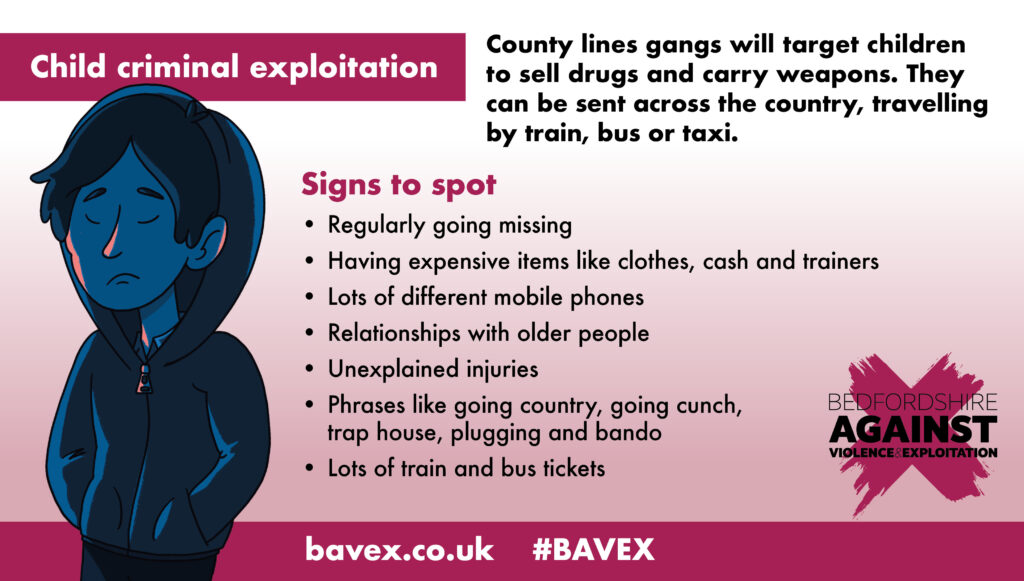
Children and young people can be sexually abused for money, power or status. They may receive things like drugs, alcohol and gifts in return for sexual activities, or be sexually exploited online.
Signs to spot:
- Lots of phone or online messages they are secretive about
- Regularly drinking and taking illegal drugs
- Gifts they can’t afford, such as clothes and jewellery
- Sudden and unusual mood changes
- Trying to hide injuries
- Older friends
- Going missing or frequently returning home late
- Changes in friends, tastes or behaviour
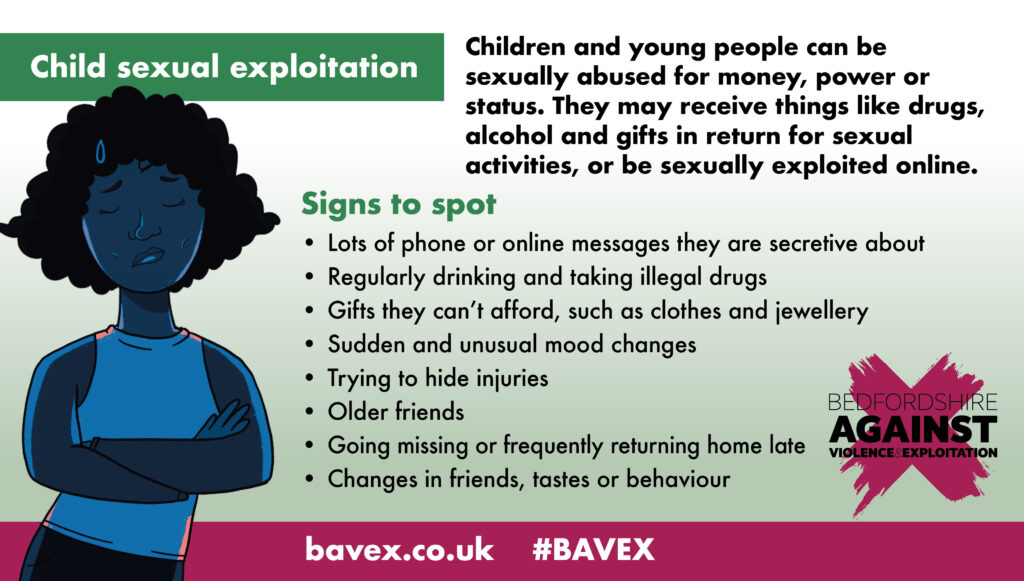
A - Z Support & Services
Designed To Help And Support Parents, Carers & Guardians.
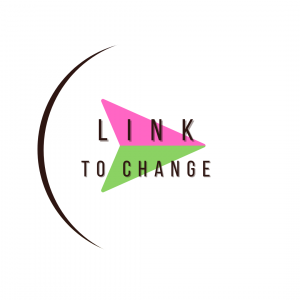
Link to Change provide support programmes and training to young people and professionals. Their projects provide 1-2-1 support, outreach work and targeted group work programmes.
From initial risk assessment and referral processes, they assess the children and young people using a contextual safeguarding framework, which is recognised as one of the most current and effective approaches.

FACES is an organisation that works in Bedford and Central Bedfordshire. The majority of their services are delivered by trained volunteers, who visit a family in their own home to offer both practical and emotional support for issues such as
domestic abuse, support for young people and families experiencing child sexual exploitation, help with pregnancy and infants, support with parenting issues, depression, isolation and victim support.
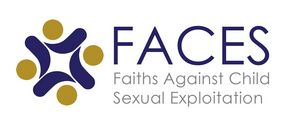
FACES is a Luton based Christian and Muslim partnership that’s been working to strengthen resilience in faith communities and enhance child sexual exploitation awareness since 2016. They focus on training, running youth
workshops and challenging damaging messages surrounding child sexual exploitation.

Whether it is you, a partner, friend, relative or colleague who has been the subject of a crime, Signpost for Bedfordshire is the way for you to find the help that meets your specific needs. The Signpost Hub offers free and confidential support to anyone affected by crime whether it has been reported to the police or not.
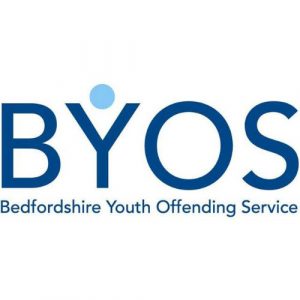
Youth offending services (YOS) also provide support to affected parents. In Bedfordshire YOS is split into two agencies, one covers Luton and the other covers Bedford and Central Bedfordshire. Click on the respective links for more information.
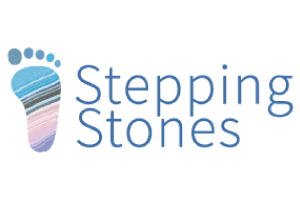
Stepping Stones (Luton) is a charity dedicated to empowering women who have suffered domestic abuse or are vulnerable due to substance misuse by providing hope and the skills and resources to make positive life choices. They also offer parent support groups.

There are three main drug and alcohol services in Bedfordshire: ResoLUTiONs Luton is a free and confidential drug and alcohol service for adults, young people and families. P2R Bedford and Central provides drug and
alcohol advice, treatment and support to adults whose lives are affected, support can include the whole family. Aquarius supports anyone under 18 in Bedford and Central that is affected by substance misuse.
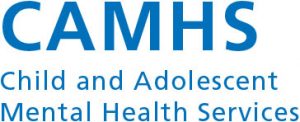
The NHS provides help to children and to the wider family, including those with living with foster parents, adopted children and young people living in children’s homes. The service may see children and adolescents on their own, with their parents or with their family, and may also see parents on their own.

Youthscape’s local to Luton team are dedicated to serving the emotional, social and spiritual development of all young people in our schools, churches and local community. They
provide diverse services supporting youth work across the UK. You can explore their national training courses, which cater to both professionals and youth workers, currently covering issues like self-harm, anxiety and emotional wellbeing.

CHUMS’ services wherever possible support the family as a whole as sometimes, everyone in the family needs a little help, not just the child who has been referred. All its group workshops support parent/carers as well as their children. Some of their current service delivery is also directly accessible to adults. CHUMS currently delivers nine services across Bedfordshire, Luton, Cambridgeshire and Peterborough although not all services are available in all four regions

You might be a parent worried about your child’s behaviour or how a divorce may impact on your family. You might be part of step-famil and need help adjusting, or you may be arguing with parents or siblings and need support communicating with each other. Regardless – Relate is here and available to help you.
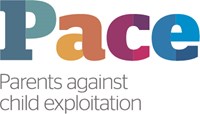
Pace recognises and celebrates the lifelong commitment parents have for their child. They help parents fight to keep their children safe and rely on your generosity to make their work possible.
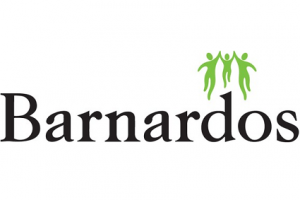
Barnardos provide a range of services to help and support families across the UK, working with organisations and professionals so that children get the best start in life.

Parenting can be rewarding, but it can also be challenging. The NSPCC has got parenting tips for all stages of your child’s life, as well as advice on how to deal with difficult situations.
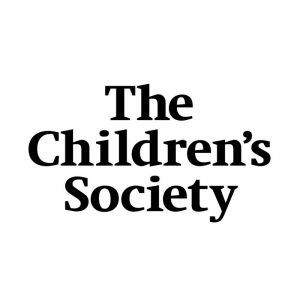
The Children’s Society empower young people to make positive changes and rediscover their hope. They want a future they can look forward to and the Children’s Society is here to make sure they get it. Working alongside young people, their families and community, they will not rest until together, step-by-step, we’ve created a society built for all children.
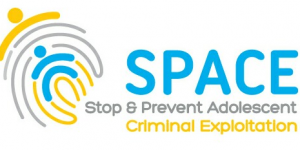
Suspecting or learning that your child has been exploited into county lines as a drug runner is a shocking and concerning revelation for any parent. SPACE offers free support to parents whose children are being exploited.

St Giles is a charity using expertise and real-life past experiences to empower people who are not getting the help they need. People held back by poverty, exploited, abused, dealing with addiction or mental health problems, caught up in crime or a combination of these issues and others.
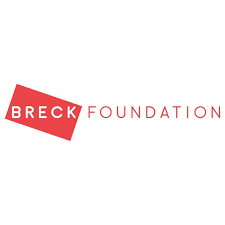
Being a parent to a child of the digital generation can be challenging. We work with parents and carers to educate them about the dangers of online grooming to help them educate and empower their children to make better decisions to stay safer online.
